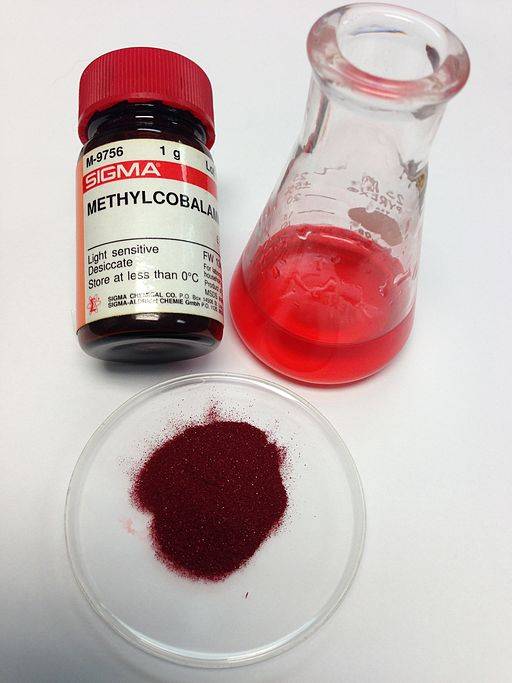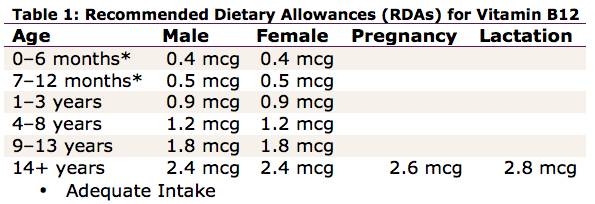Chances are, if you see a physician regularly or are into preventative health, you’ve heard of or even had a vitamin B12 injection or an injection with a mixture of B vitamins and other things like antioxidants. B12 injections are purported to enhance mood, increase energy levels, and enhance fat loss. But, do they really work?
B12 is a water-soluble B vitamin found in seafood, meat, eggs, dairy, and lots of fortified foods like cereals. Vitamin B12 is necessary for normal function of the brain and nervous system and the formation of blood cells. It is also vital in the metabolism of every cell in the body and is used in DNA and fatty acid synthesis and energy production. So, vitamin B12 is kind of a big deal.
Symptoms of low B12 can vary widely but many people feel fatigued, depressed, and may have poor memory. Some people even report numbness or tingling in their extremities. In severe cases, some people experience mania and psychosis when B12 levels are too low. There is even some research that suggests that B12 deficiency can cause permanent damage to the brain and nervous system.
Things That Can Cause B12 Deficiency
Vegetarian diets and diets that limit the consumption of meat, dairy, seafood, or fortified foods may be low in vitamin B12. Also, people with absorption issues may not be getting the vitamin B12 from their foods.
There are a couple of different reasons poor absorption may exist. First, if we don’t have enough gastric acid (hydrochloric acid), B12 won’t be released from the protein it’s naturally bound to. As we age, we naturally produce less gastric acid so we are more likely to be deficient in B12. Also, intrinsic factor (IF), another protein that is released by the parietal cells of gut, must bind with B12 or it will not be absorbed by the small intestine. Some people do not produce intrinsic factor and therefore will be deficient in B12 and develop what’s called pernicious anemia.
In addition, your intestinal mucosa and small bowel must be healthy, non-inflammed, and working properly in order to absorb the bound IF and B12.
So, a lot can go wrong. We can:
- Not be eating enough B12
- Not be making enough gastric acid
- Not be making intrinsic factor
- Have a gut that’s not healthy and absorbing nutrients adequately
Oh and I forgot, you can also be taking medications that can interfere with B12 function and absorption. Birth control, some anti-convulsant or seizure meds, antibiotics, and Metformin can decrease B12 levels. Bile resins like Questran that decrease cholesterol can decrease B12 absorption as well. Also, medicines that treat gastric reflux like proton-pump inhibitors (Prilosec, Prevacid, Protonix) and H2 receptor antagonists (Zantac, Tagamet, Pepcid) decrease gastric acid production and lower B12 absorption. And if you’re a heavy smoker or drinker, you are also at a higher risk for B12 deficiency.
Should You Get B12 Injections?
Suddenly, those B12 injections might be sounding like a good idea right? And I agree. B12 is pretty important in feeling our best and it looks like quite a few things could possibly go wrong when it comes to absorbing enough of the stuff. But do we really need to be getting injections? And will they really boost our mood, energy, and fat loss?

Well, here’s the skinny. If you are low in B12 because of an absorption issue, then yes, B12 injections will help you feel better. I would go so far as to say that if your levels are truly low, using injection to quickly increase your B12 levels is preferred over oral supplementation, which may take longer to be absorbed. You will likely feel increased energy, more mental clarity, and experience a brighter mood. However, there is no science to back up the claim of weight loss. Having said that, if you are deficient in B12, tired, depressed, and miserable, guess what you are probably doing as a result? Eating a bunch of crap trying to self-medicate! So, correcting the true problem may indeed help you to lose weight indirectly.
If you have been tested and have tried injectable or even oral B12 and just didn’t feel the love, make sure you’re getting B12 in the form of methylcobalamin, which is the form of B12 that occurs naturally in the body. Many pharmacies and companies use cyanocobalamin, which is not as bioavailable as methylcobalamin. Using a less bioavailable form of B12 may result in less than optimal relief of symptoms for some people. However, if you are not truly B12 deficient, you may notice little from injectable B12 or oral B12. Also, if you are simply not eating enough B12, are young, and have no absorption issues, then oral B12 supplementation may be enough to boost your levels.
If you’re using injectable B12, listen the advice of your health-care provider in terms of how often and how much to administer. For those interested in oral B12 supplementation, if you feel you have no absorption issues but may be experiencing some symptoms of deficiency, you might be wondering how much you should be taking. Or maybe you just figure taking a boatload should fix things up. Yes, vitamin B12 has a very low risk for toxicity, especially since it is water soluble and excess is urinated out of the body. However, no one wants to waste money. So, below you will find a chart with the recommended daily doses. However, everyone is a bit different and increased activity levels generally indicate a need for more of a nutrient. So find what dose makes you feel the best and stick with it.

Table: https://ods.od.nih.gov/factsheets/VitaminB12-HealthProfessional/
So, to sum things up, vitamin B12 is an important nutrient and if we’re deficient we can certainly wind up with some potentially severe and lasting side effects. Injections are warranted when a patient is not absorbing well or is truly deficient and prefers or needs to increase levels quickly. However, oral B12 can be just as effective in increasing or maintaining B12 levels in those with no absorption issues.
B12 is a great thing, a wonderful supplement when needed, and injections certainly are the right answer for many. Just keep in mind, there is no magic pill or shot and it’s a combination of healthy living and fitness that increase our overall energy levels and vitality. So take your B12, but don’t forget the rest!
Photo 1 courtesy of Shutterstock.
Photo 2 Sbharris (Steven B. Harris) (Own work) [CC-BY-SA-3.0], via Wikimedia Commons.






